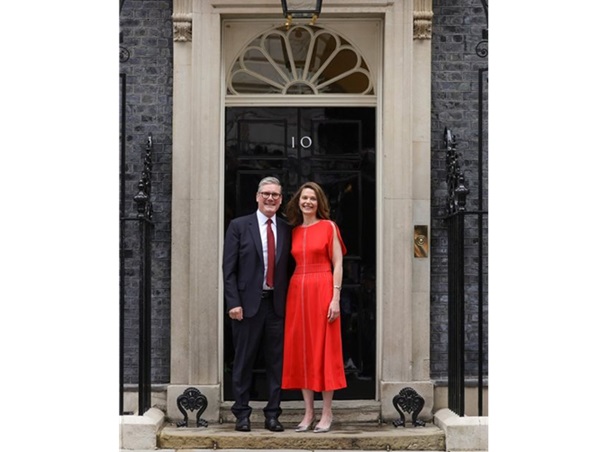 Credit: Sir Keir Starmer via Facebook
Credit: Sir Keir Starmer via Facebook
On Friday 5 July 2024, the Labour Party claimed the majority in the UK Parliament following the general election the previous day and thus put an end to a fourteen-year-long Conservative government.
With all but two seats declared by mid-afternoon on Friday, the Labour Party had gained 214 seats to win with a staggering 412 majority. On the other hand, the Conservative Party lost 251 seats to secure a total of 121 MPs in this election. The Liberal Democrats amassed 71 seats, a massive increase for them; meanwhile, the Scottish National Party won only 9 seats in comparison to previously holding 46.
Sir Keir Starmer, leader of the Labour Party, has become the UK's new Prime Minister (PM) and the first non-Conservative to hold the position in over a decade. Throughout the campaign, he has vowed to bring change in economic, social and climate policies. The Labour Party has promised to increase the number of National Health Service (NHS) appointments, as well as increase the minimum wage.
Rishi Sunak, the defeated leader of the Conservative Party, has congratulated his opponent on the win and acknowledged the hard work of his colleagues, as well as embraced the need for change in future elections. He has resigned from his role as Prime Minister of the United Kingdom.
10 Downing Street, the official residence of the PM in central London, has already been transferred to Sir Keir Starmer as procedures for him to form his new government are already underway. He has also already had his audience with King Charles III, a formality that all newly-elected PMs go through.
Many have called the Labour win a "landslide" due to the overwhelming change in the voting pattern compared to previous elections that have been dominated by Conservatives. It is also believed that many have voted Labour due to the Conservative Party's failure to address and mend the economic stagnation currently hurting the country. The hope among many voters is that a new party leading the country will bring about positive changes concerning domestic life.
Although the polls have been predicting this outcome for some time, the results in some areas have been surprising, as is the final number of seats that each party has secured. The former Labour leader, Jeremy Corbyn, was re-elected as MP for Islington North as an independent, a rarity among candidates for the UK Parliament. Liz Truss, former Prime Minister from the Conservative Party, lost her seat in South West Norfolk. For many, this did not come as a surprise following her brief leadership term which saw numerous financial difficulties.
Among other surprises of this election was Nigel Farage's success with his new right-wing Reform Party which has won four parliamentary seats. This was his eighth attempt at becoming a Member of Parliament (MP) and the first victory.
The remainder of the parliamentary seats are split among other parties in the following way: Sinn Féin with seven seats, Democratic Unionist Party with five, Green Party claiming four seats, Plaid Cymru with four, and Social Democratic and Labour Party with two seats.
This general election has brought about a myriad of surprises and changes; however, the true outcome will not be known for some time until the new Labour government takes power. It is also unknown how the relationship between the European Union and the United Kingdom will develop following the changes in both political atmospheres.








